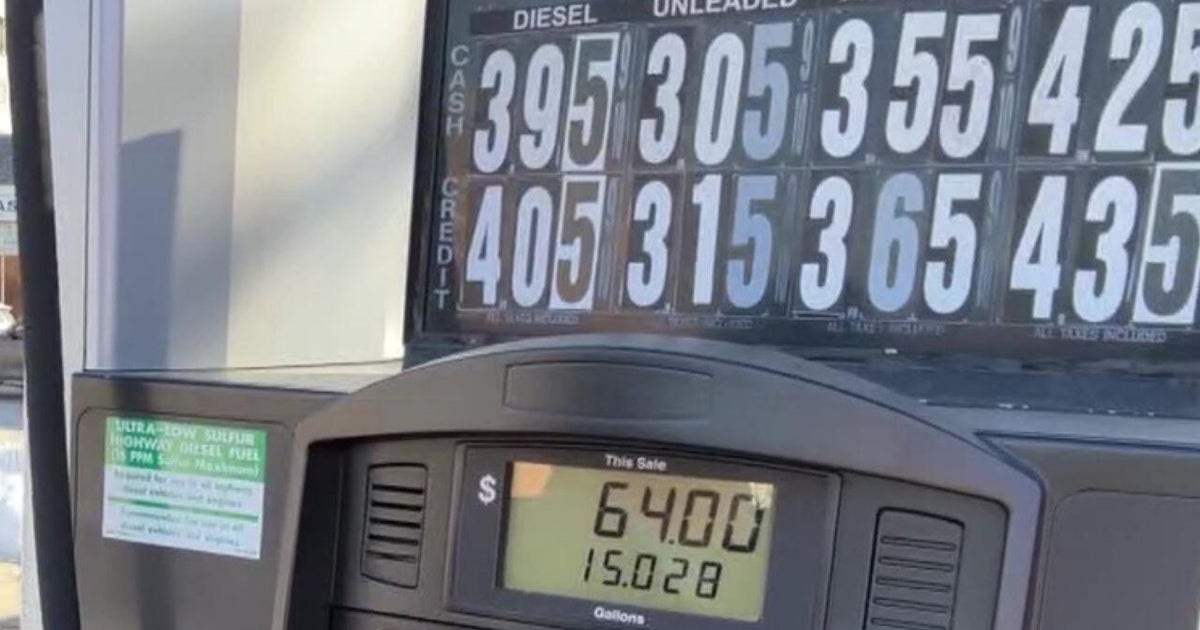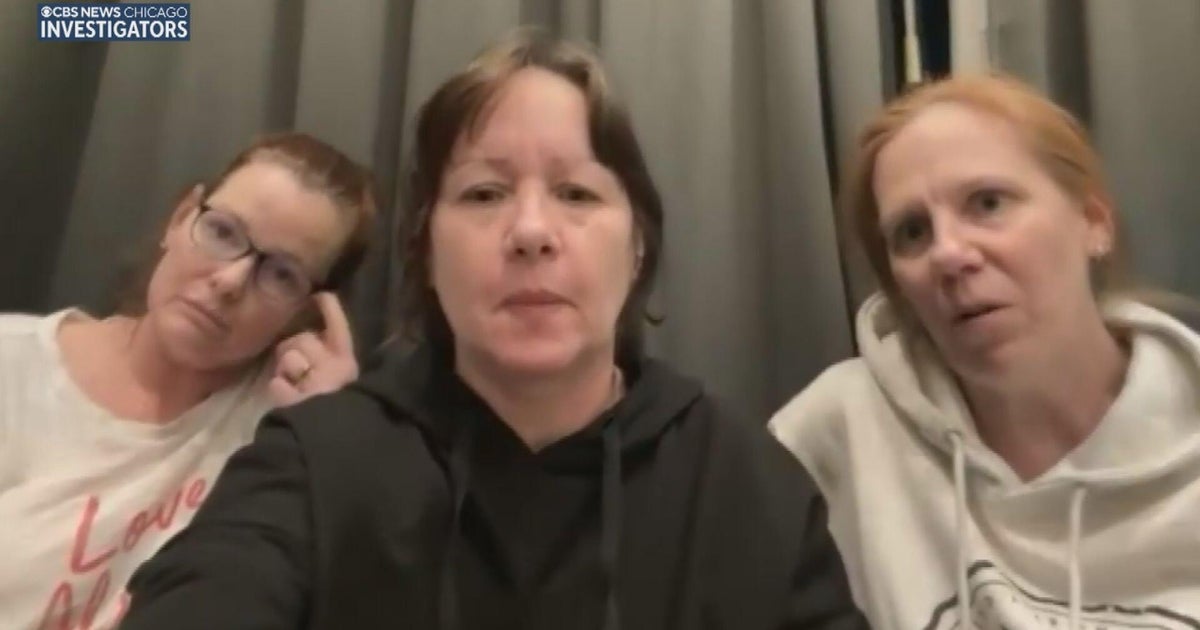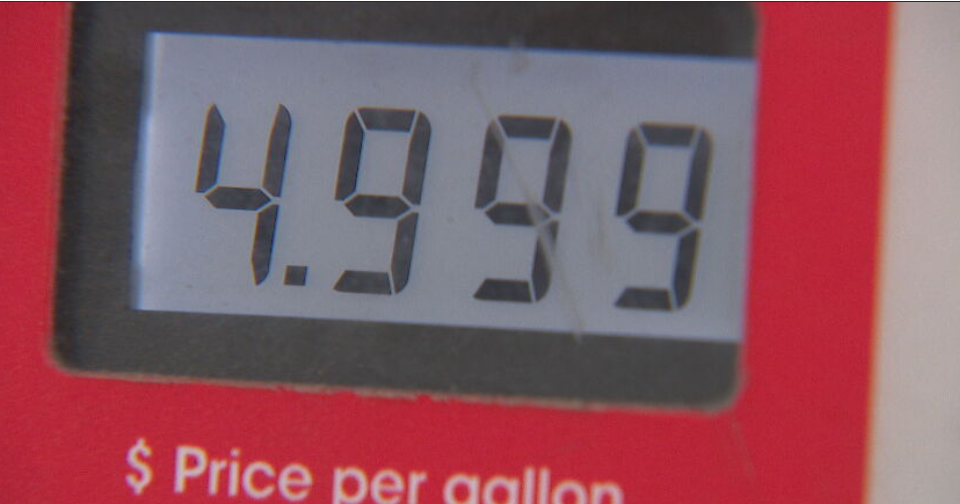Are we in a recession? An expert says yes, but there's a sliver of good news about falling prices
CHICAGO (CBS) -- Recession – it's a word we hear a lot lately.
We heard it even more than usual on Thursday upon the release of a key economic indicator. The U.S. gross domestic product output fell for the second consecutive quarter.
The GDP a measure of total spending on goods and services across the economy, fell at an annual rate of 0.9 percent, the Commerce Department said Thursday.
The contraction follows a 1.6 percent decline in economic activity in the first three months of the year – which indeed means the U.S. could currently be in a recession, which is broadly defined as two straight quarters of negative growth.
H. Robert Heller, who served on the board of governors of the Federal Reserve and also served as president and chief executive officer as Visa U.S.A., dispensed with "could be" as he spoke to CBS 2's Brad Edwards Thursday.
"I think we are in a recession," Heller said. "We have two quarters of negative growth, and most economists have defined a recession as to negative quarters – so we got it."
The hottest inflation in 40 years is crimping household budgets, with some consumers struggling to cover basics such as gasoline, food and rent, which have sharply risen in price from a year ago.
At the same time, the Federal Reserve on Wednesday raised interest rates for the fourth time this year in an effort to dampen inflation. But that is also making it more expensive for consumers and businesses to borrow for big purchases like homes and cars.
"[T]he reported weakening in domestic demand confirms the economy is rapidly downshifting amid stubbornly high inflation and aggressive Fed tightening," wrote Lydia Boussour, lead U.S. economist at Oxford Economics, in a research note.
In the second quarter, GDP was impacted by decreases in investment in private inventory, residential fixed investment and government spending. Americans held off on purchases, reducing spending at retailers as well as car dealers, the Commerce Department said.
Boussour added, "While we continue to see a pathway to a softish landing, it's admittedly narrowing."
At midday Thursday, the Dow was trading at 32,504. Last year on this day, it was trading at 34,930 - a 7 percent drop in the last 12 months.
Last year's white hot housing market has also cooled.
Heller said while indicators such as layoffs and foreclosures have not been seen at this time, there is still evidence of a recession – including with regard to the housing market.
"You can feel the pain. You can see, for instance – if I look out the window, the houses around us are selling at a much slower pace than before. People used to have two, three offers on nice houses, and now, they are lucky to get one within a week, two weeks, three weeks. It's not a terrible economy," he said. "We're still a t a good level… employment is very, very good still. Businesses are looking for more people than there are people who can be hired, so we are at a pretty good high level. We're definitely slowing down. A recession just means negative growth of a high level."
Why? In an effort to lower inflation, interest rates soaring - jumping Thursday again.
Nerdwallet shows the average 30-year mortgage comes with a 5.45 percent interest rate - the cost to borrow the money. Last year at this time, it was 2.87 percent.
That is a 90 percent jump, which has created a stall in home sales. The interest rate jump has also lead to car sales flattening.
Overall when it comes to the effects of a recession, Heller said at a scale of one to 10 for a level of concern, he is at a four.
"It's little bit more than neutral, but you know you've got to tighten your belt a little bit like I said before. Don't overspend, have something set aside, and be ready for a calamity," he said. "After all inflation has to come down. At the moment we have 9.1 percent inflation. And as the economy is being pushed down to get rid of these inflationary forces, individuals will feel it – and it will be harder to find a new job. Don't quit your job right now. Hang on to your job."
But Heller also said he thinks the pain will last months – not years.
"I think it's going to last for quite a while – certainly well into next year. We won't see any change before late this year, early next year – and it will take quite a while before the Fed can ease up and sees inflation in the rearview mirror," he said. "Remember we've got to come down from inflation from 9 percent to roughly 2 percent. That's where the Federal Reserve we'd like to be. That will take at least a year, so there will be the negative downward pressure that we will be facing for quite a while to come and that's what you want to be prepared for."
Meanwhile, there is a slight bit of good news in recent days from the pump to the produce aisle. Slowly and slightly, trunkloads of groceries are getting cheaper.
Wholesale coffee prices down 5 percent since the start of July, while cooking oil prices down 10 percent since May. Wholesale prices of Mexican avocados are down 27 percent.
"We are not there yet, but we are starting to see the trend in the right direction," said CBS News Business Analyst Jill Schlesinger. "So I suspect prices are going to keep coming down, but they are going to remain uncomfortably high for a longer period of time than any of us would like."
Contributing to those drops is a long-awaited drop in the price of gas. A gallon of regular unleaded in Illinois last month was $5.43, while today, it is 4.76 - a drop of 12 percent.
As always, Cook County is 50 cents pricier than that.
Meanwhile, 401k's taking it on the chin - chipping away at consumer confidence. But if you're playing the long game?
"This is a very good time to be a long-term investor," Schlesinger said.
At midday Thursday, the Dow was trading at 32,504. Last year on this day, it was trading at 34,930 - a 7 percent percent drop in the last 12 months.
Our experts say of all things helping keep this market afloat, it is those strong employment numbers, which likely will not hold into next year.
And for families still spending stimulus dollars, those going away are creating a new reality that is baked into this uncertain stretch.h.








